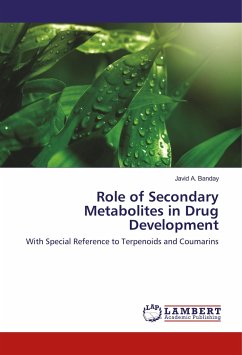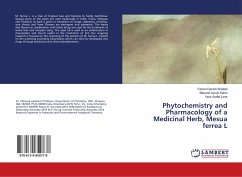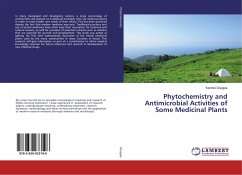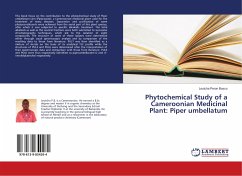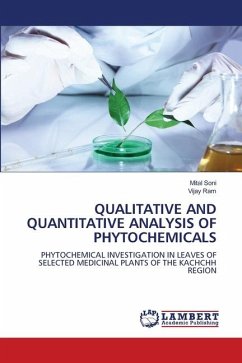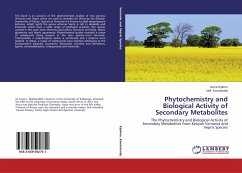
Phytochemistry and Biological Activity of Secondary Metabolites
The Phytochemistry and Biological Activity of Secondary Metabolites from Kenyan Vernonia and Vepris Species
Versandkostenfrei!
Versandfertig in 6-10 Tagen
47,99 €
inkl. MwSt.

PAYBACK Punkte
24 °P sammeln!
This book is an account of the phytochemical analysis of two genera, Vernonia and Vepris which are used as remedies for illness by the Kalenjin community of Kenya. Species of Vernonia are known to yield sesquiterpene lactones, which typify the genus whereas Vepris is rich in alkaloids and limonoids which have a wide range of biological activities. The species studied in this work were Vernonia auriculifera, Vernonia urticifolia, Vepris glomerata and Vepris uguenensis. Phytochemical studies revealed a range of compounds being present in the four species. From Vernonia, triterpenoids, a sesquite...
This book is an account of the phytochemical analysis of two genera, Vernonia and Vepris which are used as remedies for illness by the Kalenjin community of Kenya. Species of Vernonia are known to yield sesquiterpene lactones, which typify the genus whereas Vepris is rich in alkaloids and limonoids which have a wide range of biological activities. The species studied in this work were Vernonia auriculifera, Vernonia urticifolia, Vepris glomerata and Vepris uguenensis. Phytochemical studies revealed a range of compounds being present in the four species. From Vernonia, triterpenoids, a sesquiterpene amine, a carotenoid and a polyene were isolated. In Vepris, a range of compounds were isolated, belonging to the furoquinoline alkaloids, coumarins, flavonoids, cinnamic acid derivatives, lignins, cinnamaldehydes, triterpenoids and limonoids.





